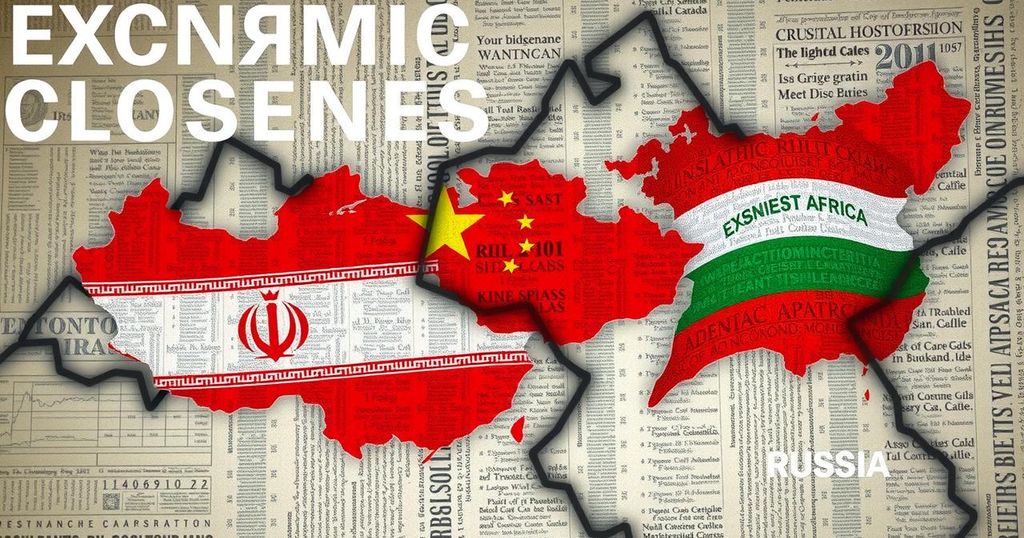Global Economic and Political Update: Iran, China, South Africa, and Russia

Iran suffers an economic crisis with the rial plummeting to 777,000 to the dollar. China extends visa-free travel to boost tourism, seeing an 86% increase in foreign visitors. South Africa closes over 1,000 spaza shops due to health risks. Russia arrests a suspect in the assassination of a general, allegedly linked to Ukraine’s military strategy.
Iran is currently facing unprecedented economic and political turmoil, as evidenced by the Iranian rial plummeting to a staggering 777,000 against the US dollar, its lowest recorded value. This financial crisis is compounded by substantial losses in regional influence, notably the decimation of Hezbollah by Israeli forces and the loss of a critical ally in Syria, alongside an energy crisis causing widespread school and governmental closures.
In a strategic move to rejuvenate its tourism sector, the Chinese Communist Party has broadened its visa-free travel initiative to encompass a duration of ten days for citizens from fifty countries, including the United States. Additionally, passport holders from nearly forty other nations are now permitted to stay for an entire month. Since the relaxation of Covid-19 restrictions, China has observed a significant uptick in foreign tourism, with visitor numbers rising by 86% in the initial eleven months of the year, totaling almost 30 million arrivals.
A serious health crisis has prompted the South African government to close down 1,041 informal grocery shops, known as spaza shops. This drastic measure follows numerous fatalities among children due to pesticide contamination of food sold at these establishments. Reports indicate that shopkeepers had been using harmful vermin control products that inadvertently entered the food supply, leading to severe health hazards.
Moreover, Russia has taken decisive action in response to a recent assassination. The Federal Security Service has detained a suspect, identified as an Uzbek national, in connection with the bombing of Lieutenant General Igor Kirillov’s scooter. Allegedly contracted by Ukraine for $100,000, the suspect is implicated in the targeting of Kirillov, who commanded operations involving purportedly banned chemical weapons during the ongoing conflict in Ukraine, since Russia’s invasion in 2022.
The geopolitical landscape involving Iran highlights a complex scenario where economic sanctions and military conflicts exacerbate the nation’s struggles. The Iranian rial’s decline is indicative of broader economic instability resulting from both internal policies and external pressures. In the meantime, China’s tourism revival demonstrates a strategic pivot post-pandemic, aimed at economic recovery through increased foreign investment and engagement. South Africa’s public health response to spaza shop closures reflects a rising concern over food safety and public health, especially as it affects vulnerable populations. Additionally, the charged atmosphere in Russia amid ongoing conflicts presents layers of intrigue, particularly regarding allegations of foreign involvement in the assassination of military leaders, as it relates to broader regional tensions.
In summary, Iran grapples with significant economic challenges marked by the rial’s record decline amidst regional conflicts. China is actively promoting tourism through favorable visa policies to bolster its economy, while South Africa prioritizes public health by cracking down on unsafe food sources. Finally, Russia’s serious measures in addressing high-profile assassinations underscore the escalating tensions within its own geopolitical dynamics as the conflict with Ukraine continues. These developments reveal a complex interplay of economic, health, and security issues shaping the current global landscape.
Original Source: www.gzeromedia.com






